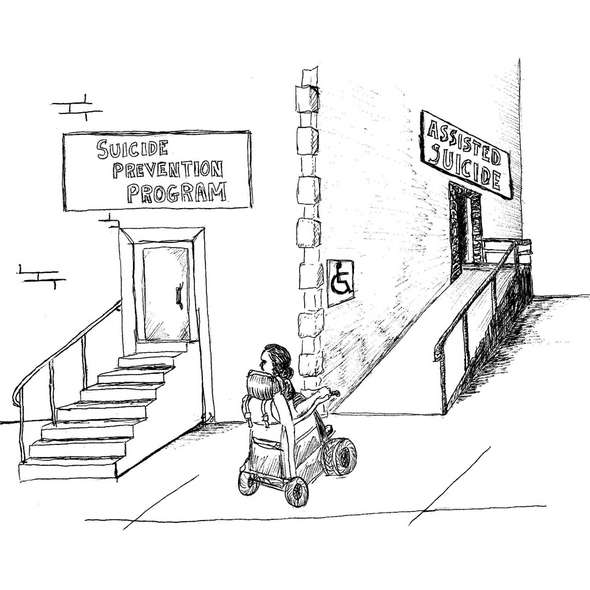
Media Release 27 June 2017
Family First New Zealand has made a submission to the Strategy to prevent suicide in New Zealand calling on strict guidelines around the media reporting of assisted suicide & euthanasia.
In their submission, Family First has warned the Ministry of Health that the public debate over assisted suicide presents a serious risk to public health and safety because there is a ‘social contagion’ aspect to suicide – assisted or non-assisted – and that the discussion should be focused around suicide prevention.
Family First is also warning that guidelines around the media reporting of suicides are being widely ignored in the reporting of recent instances of assisted suicide, with the subject’s decision to end his or her life frequently presented in the media as inspiring and even heroic, and the means of committing suicide being clearly spelt out.
“You don’t discourage suicide by the promotion of assisted suicide. Suicide is already a public health crisis. This will just confuse the message to vulnerable people,” says Bob McCoskrie, National Director of Family First NZ.
“Many of us are concerned with the impact on elder suicide and youth suicide as a result of ‘normalising’ the concept of so-called ‘rational suicide’. There is a risk to young and to vulnerable people and to elderly people as a result of the current obsession in New Zealand with promoting assisted suicide / euthanasia. The reporting of cases related to this topic should be restrained and should come under the same restrictions as the reporting of any forms of suicide. A New Zealand Medical Journal report by New Zealand suicide researchers Annette Beautrais and David Fergusson says reporting on suicide in any way puts vulnerable people at risk.”
Commenting on Brittany Maynard’s suicide which has been a cause de celebre for euthanasia advocates, social scientist Dr. Aaron Kheriaty from the University of California argues that “given what we know about suicide’s social effects, and given the media portrayal around her death, we can anticipate that her decision will influence other vulnerable individuals.”
Family First is calling on the Ministry of Health to create and adopt strict guidelines around the media reporting of assisted suicide / euthanasia, to ensure that restrictions on reporting are in place to protect those who are already vulnerable. Reports of any forms of suicide can give vulnerable people “triggers or pictures” around potential methods.
“Promotion of assisted suicide is a message that will be heard not just by those with a terminal illness but also by anyone tempted to think he or she can no longer cope with their suffering – whatever the nature of that suffering. This is the real risk to young and to vulnerable people and elderly people if NZ follows the path of promoting – and allowing – assisted suicide,” says Mr McCoskrie.
ENDS


